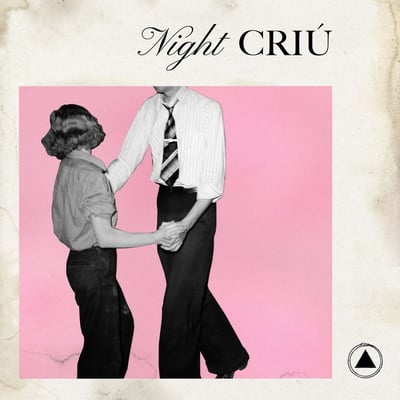
Hilary Woods Night CRIÚ
Hilary Woods's Night CRIÚ unfolds like a private ritual, a collection of sparse hymns and drifting drones that convert solitude into something devotional and incandescent. Critics agree the record earned strong marks for its restrained power, with the album achieving an 81/100 consensus score across 4 professional reviews, and songs such as “Faults”, “Endgames” and “Offerings” repeatedly emerging as the collection's emotional beacons.
Across reviews, commentators highlight Woods' hybrid of avant-garde and traditional song forms, where minimal melodies and ambient soundscapes meet brass, choir textures and hypnagogic atmospheres. “Faults” is called one of her most gorgeous compositions, its hushed vocal, sombre drums and funeral-like horns crystallizing the record's sombre beauty. “Endgames” functions as a slow-reveal centerpiece, a two-chord suspension that turns longing into ritual, while “Offerings” compresses profound feeling into a short, keening statement. Critics consistently praise the album's stripped-back production and dream-pop minimalism, noting moments of childlike juxtaposition and generational voices that make the mood both intimate and uncanny.
While professional reviews largely commend Woods' return to song and atmospheric clarity, some note the album's icy, mournful register may feel austere to those expecting denser textures. Still, the critical consensus suggests Night CRIÚ stands as a quietly essential entry in her catalog, a hypnotic, ritualistic record whose standout tracks - especially “Faults”, “Endgames” and “Offerings” - reward repeated listening and close attention to voice and detail. Below, the full reviews unpack how these songs shape the album's haunting logic.
Critics' Top Tracks
The standout songs that made critics take notice
Faults
4 mentions
"The delicate “Faults” is another standout, its careful shuffling rhythm punctuated with brass flourishes and capped off by a soaring vocal from Woods."— No Ripcord
Endgames
3 mentions
"“Endgames,” with its purposeful beat, swirling instrumentation, and ghostly vocal, manages to be simultaneously soothing and sinister."— No Ripcord
Taper
4 mentions
"The laid-back back “Taper” is as close as Night CRIÚ comes to a ‘single,’"— No Ripcord
The delicate “Faults” is another standout, its careful shuffling rhythm punctuated with brass flourishes and capped off by a soaring vocal from Woods.
Track Ratings
How critics rated each track, relative to this album (0-100). Only tracks that made critics feel something are rated.
Voce
Faults
Endgames
Brightly
Taper
Offerings
Shelter
What Critics Are Saying
Deep insights from 4 critics who reviewed this album

Critic's Take
Hilary Woods crafts a windswept, icy world on Night CRIÚ, where songs like “Offerings” and “Shelter” become the clearest beacons of her foggy art. McMullen’s prose lingers on the album's crystallized, hazy-hued beauty, arguing that these tracks provide the most vivid, tangible moments. The review frames the best songs as guides through solitude and mourning, their choral and layered arrangements proving why listeners search for the best songs on Night CRIÚ. It reads like an invitation - stay a while in that pained reprieve, and let the standout tracks pull you through.
Key Points
-
The best song, notably "Offerings", stands out for its mournful choral arrangements and icy, decisive exit.
-
The album's core strengths are its immersive atmosphere, layered vocals, and a crystallized, hazy-hued beauty that evokes isolation and mourning.
Themes

Critic's Take
Hilary Woods' return to song on Night CRIÚ feels like a ritual reclaimed, and the record's best songs - Faults, Endgames and Offerings - make that case vividly. In language that is devout without spectacle, the reviewer praises Faults as "right up there with the most heart-stopping things she’s ever written", noting brass that lifts the line heavenward and a hymn-like tenderness. Endgames is held up as a masterclass in slow revelation, its two-chord suspension turning longing into ritual. Meanwhile, the short, keening power of Offerings is presented as proof that Woods can summon profound feeling in just over two minutes.
Key Points
-
‘Faults’ is the standout for its hymn-like tenderness and heart-stopping emotional lift.
-
The album's core strengths are vocal reclamation, ritual atmosphere, and intimate, devotional sound design.
Themes

Critic's Take
Hilary Woods finds herself at the crossroads of avant-garde drone and cerebral dream-pop on Night CRIÚ, and the best songs - notably “Endgames” and “Faults” - show why. The reviewer lingers on “Endgames” as simultaneously soothing and sinister, a hypnagogic centerpiece driven by a purposeful beat and ghostly vocal. “Faults” is praised as a delicate standout, its shuffling rhythm and brass flourishes capped by a soaring vocal that crystallises the album's solemn beauty. The calmer “Taper” is singled out as the record's most single-like moment, gently propelled by distant brass and a haunting choir.
Key Points
-
“Endgames” is the best song because it perfectly balances soothing and sinister elements and renders a hypnagogic state vividly.
-
The album’s core strength is merging avant-garde drones with dream-pop songcraft to create haunting, solemn beauty.
Themes

Critic's Take
The best tracks on Night CRIÚ are those where Hilary Woods pares everything back and lets melody and voice do the work; the reviewer's voice lingers longest on Faults and Taper. In the same lucid, measured tone that praises Woods' move away from dense soundscapes, he calls Faults "one of the most gorgeous songs" and details its hushed vocals, sombre drum and funeral-like horns. He singles out the final third of Taper for its startling children's choir moment, a juxtaposition that crystallises the album's charm. Overall the reviewer presents Night CRIÚ as Woods at her most stripped-back and honest, the slow-moving wonders growing in emotional steam to become the album's best songs.
Key Points
-
The best song is best because sparse arrangement and dreamlike vocals deliver maximal emotional payoff.
-
The album's core strengths are stripped-back production, intimate melodies, and a tension between playfulness and lurking darkness.